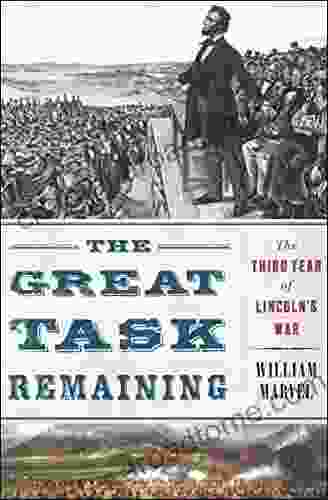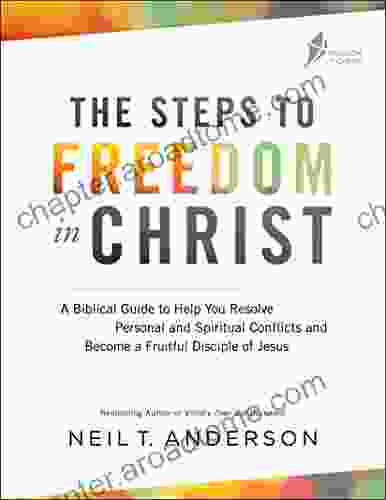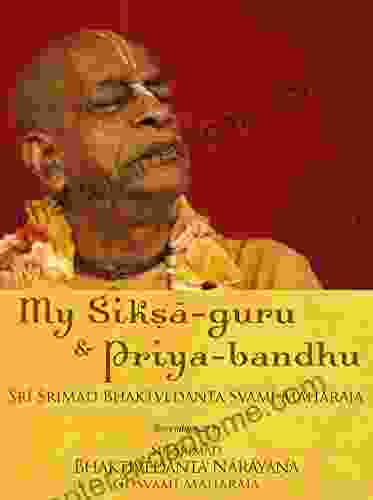The Great Task Remaining: Uncovering the Hidden History of the American Revolution

4.6 out of 5
| Language | : | English |
| File size | : | 4334 KB |
| Text-to-Speech | : | Enabled |
| Screen Reader | : | Supported |
| Enhanced typesetting | : | Enabled |
| Word Wise | : | Enabled |
| Print length | : | 467 pages |
| Lending | : | Enabled |
In his groundbreaking work, The Great Task Remaining, historian Nick Bunker challenges traditional narratives of the American Revolution, revealing the hidden history of how ordinary people fought for freedom and equality.
Bunker argues that the Revolution was not simply a conflict between the American colonies and Great Britain, but a much broader struggle for social and political change. He shows how ordinary people, from farmers and artisans to slaves and women, played a vital role in the fight for independence.
Bunker's research is based on a wide range of sources, including letters, diaries, and newspapers. He draws on the voices of ordinary people to tell the story of the Revolution from their perspective. The result is a rich and nuanced account that challenges the traditional view of the Revolution as a top-down affair.
The Great Task Remaining is a must-read for anyone interested in the American Revolution or the history of social and political change. Bunker's groundbreaking work sheds new light on one of the most important events in American history.
The Hidden History of the American Revolution
The traditional narrative of the American Revolution focuses on the actions of a few great men, such as George Washington, Thomas Jefferson, and Benjamin Franklin. However, Bunker argues that the Revolution was not simply a story of these elite leaders. Ordinary people played a vital role in the fight for independence.
Bunker's research shows that ordinary people were involved in every aspect of the Revolution. They fought in the battles, provided food and supplies to the army, and helped to build the new nation. They also played a key role in the political debates that shaped the course of the Revolution.
For example, Bunker tells the story of a group of farmers in Massachusetts who refused to pay taxes to the British government. Their act of defiance helped to spark the Revolution. He also tells the story of a group of women in Philadelphia who organized a boycott of British goods. Their actions helped to put pressure on the British government to repeal the Stamp Act.
The stories of these ordinary people challenge the traditional view of the Revolution as a top-down affair. Bunker's research shows that the Revolution was a truly popular movement that involved people from all walks of life.
The Fight for Freedom and Equality
The American Revolution was not simply a fight for independence from Great Britain. It was also a fight for freedom and equality. Bunker shows how ordinary people fought for their rights during the Revolution.
For example, he tells the story of a group of slaves in Virginia who rebelled against their masters. Their rebellion was brutally suppressed, but it helped to raise awareness of the issue of slavery. He also tells the story of a group of women in New Jersey who fought for the right to vote. Their efforts were unsuccessful, but they helped to lay the groundwork for the women's suffrage movement.
The fight for freedom and equality was a central part of the American Revolution. Bunker's research shows how ordinary people fought for their rights during this transformative period in American history.
The Great Task Remaining
The American Revolution was a great victory for freedom and equality. However, the fight for these ideals is not over. Bunker argues that the "great task remaining" is to continue to work towards a more just and equitable society.
Bunker's book is a reminder that the American Revolution was a work in progress. The ideals of freedom and equality that inspired the Revolution are still being fought for today.
The Great Task Remaining is a call to action for all of us who believe in the promise of America. Bunker's work inspires us to continue the fight for a more just and equitable society.
4.6 out of 5
| Language | : | English |
| File size | : | 4334 KB |
| Text-to-Speech | : | Enabled |
| Screen Reader | : | Supported |
| Enhanced typesetting | : | Enabled |
| Word Wise | : | Enabled |
| Print length | : | 467 pages |
| Lending | : | Enabled |
Do you want to contribute by writing guest posts on this blog?
Please contact us and send us a resume of previous articles that you have written.
 Book
Book Novel
Novel Page
Page Chapter
Chapter Text
Text Story
Story Genre
Genre Reader
Reader Library
Library Paperback
Paperback E-book
E-book Magazine
Magazine Newspaper
Newspaper Paragraph
Paragraph Sentence
Sentence Bookmark
Bookmark Shelf
Shelf Glossary
Glossary Bibliography
Bibliography Foreword
Foreword Preface
Preface Synopsis
Synopsis Annotation
Annotation Footnote
Footnote Manuscript
Manuscript Scroll
Scroll Codex
Codex Tome
Tome Bestseller
Bestseller Classics
Classics Library card
Library card Narrative
Narrative Biography
Biography Autobiography
Autobiography Memoir
Memoir Reference
Reference Encyclopedia
Encyclopedia Mvikeli Ncube
Mvikeli Ncube Nick Breau
Nick Breau Michael Oppenheim
Michael Oppenheim V L Jennings
V L Jennings Mike Hagen
Mike Hagen T S Eliot
T S Eliot Michelle Welch
Michelle Welch Nicola Hall
Nicola Hall Peter Oldham
Peter Oldham Waikeung Tam
Waikeung Tam Scott Dikkers
Scott Dikkers Nicole Hemmenway
Nicole Hemmenway Sundar Rushdie
Sundar Rushdie Richard Chiappone
Richard Chiappone Rolf Slotboom
Rolf Slotboom Natali Valdez
Natali Valdez Senyo Adjibolosoo
Senyo Adjibolosoo With Kirk And Kim Miller
With Kirk And Kim Miller Rowland G Hazard
Rowland G Hazard Mindi Abair
Mindi Abair
Light bulbAdvertise smarter! Our strategic ad space ensures maximum exposure. Reserve your spot today!

 Carter HayesUnveiling the Enigma of Fibromyalgia: A Comprehensive Guide to Understanding...
Carter HayesUnveiling the Enigma of Fibromyalgia: A Comprehensive Guide to Understanding...
 Ralph EllisonThe Race to Extinguish: A Gripping Tale of the Fight Against Deadly Epidemic...
Ralph EllisonThe Race to Extinguish: A Gripping Tale of the Fight Against Deadly Epidemic... David Foster WallaceFollow ·14.8k
David Foster WallaceFollow ·14.8k Allen ParkerFollow ·15.6k
Allen ParkerFollow ·15.6k Jeffery BellFollow ·10.8k
Jeffery BellFollow ·10.8k Bob CooperFollow ·10.5k
Bob CooperFollow ·10.5k Isaac BellFollow ·15.6k
Isaac BellFollow ·15.6k Carlos DrummondFollow ·14.6k
Carlos DrummondFollow ·14.6k Ken SimmonsFollow ·19.2k
Ken SimmonsFollow ·19.2k Juan RulfoFollow ·15.7k
Juan RulfoFollow ·15.7k
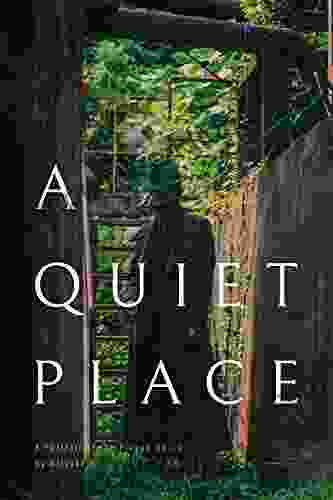
 Samuel Beckett
Samuel BeckettPortrait of the Plague Doctor: A Chilling Tale of Fear...
Prologue: A...

 Elliott Carter
Elliott CarterTrends in Modeling and Simulation Studies in...
Unveiling the Convergence of...

 Natsume Sōseki
Natsume SōsekiCells For Kids: Science For Children
Unlock the Microscopic...
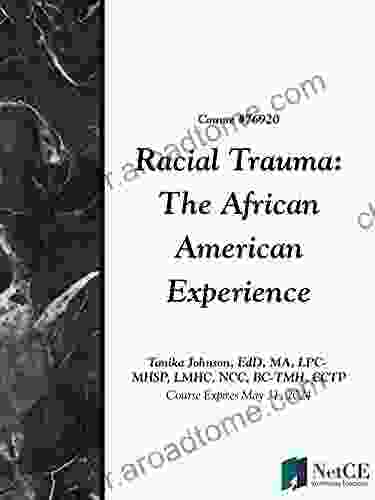
 Anthony Wells
Anthony WellsUnlock the Power of Understanding: Embrace the African...
Embark on a Journey of Truth,...

 Forrest Reed
Forrest ReedBreaking Free: Healing from Toxic Relationships Between...
Are you struggling...
4.6 out of 5
| Language | : | English |
| File size | : | 4334 KB |
| Text-to-Speech | : | Enabled |
| Screen Reader | : | Supported |
| Enhanced typesetting | : | Enabled |
| Word Wise | : | Enabled |
| Print length | : | 467 pages |
| Lending | : | Enabled |


